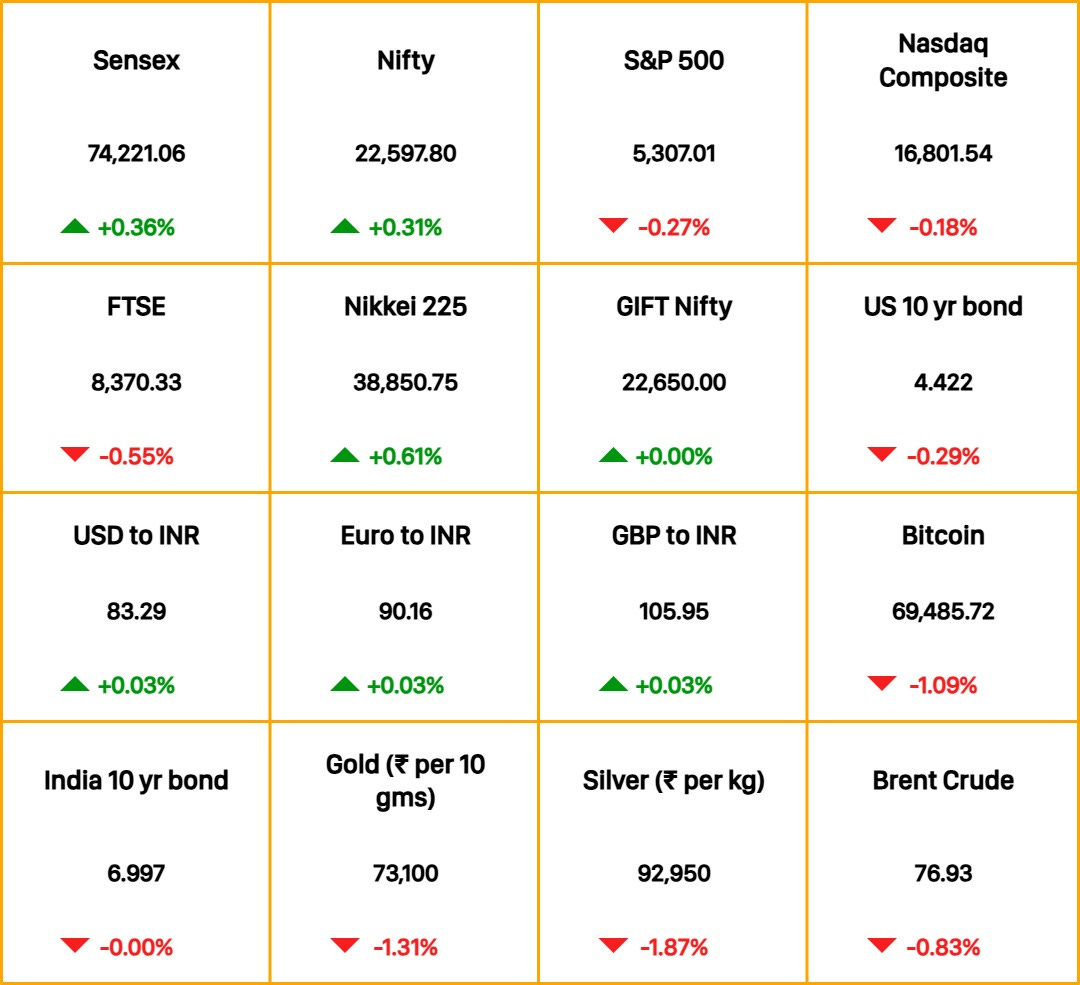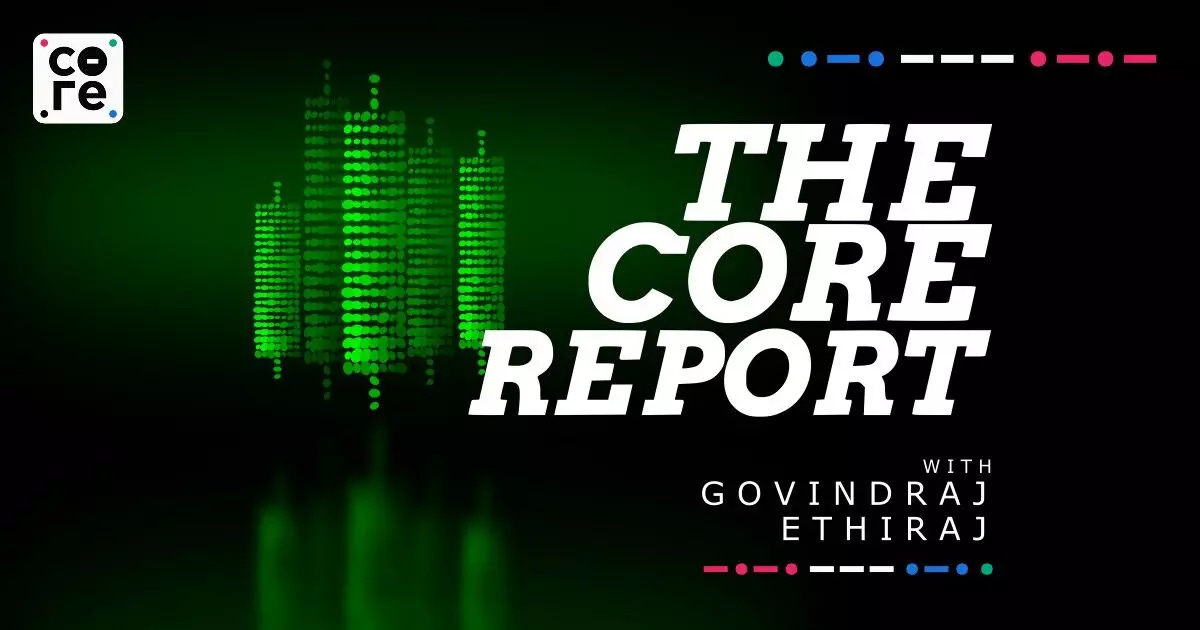Can Google fix its mega Pixel flub?
Also in today’s edition: How climate change is making air travel riskier; China’s tit-for-tat tariffs
Good morning! Picture a flight ready to take off, and at the last second, the crew notices a lone dude standing at the back of a jam-packed plane. What a terror! Except, on an IndiGo flight going to Varanasi from Mumbai on Tuesday, it was just overbooking idiocy. According to The Hindustan Times, after spotting this guy, the plane rushed back, and the extra passenger was off-boarded. The airline later claimed he was an IndiGo employee who was mistakenly given a confirmed passenger's seat. That still leaves one question unanswered: what was he thinking lurking at the rear of the plane?
🎧 Flipkart’s quick commerce dreams. Also in today’s episode: the link between climate change and flight turbulence. Tune in to Spotify, Apple Podcasts, Amazon Music, Google Podcasts, or wherever you get your podcasts.
Dinesh Narayanan, Soumya Gupta, and Anup Semwal also contributed to today’s edition.
The Market Signal*
Stocks & Economy: Surging demand for AI chips fuelled Nvidia’s first quarter net profit seven times over the comparable period of 2023 to about $15 billion on $26 billion revenue. The company expects revenue to top $28 billion in the next quarter. The stock, which was already up 92% this year, added $140 billion to its value.
A top forecaster, meanwhile, has predicted that the Indian rupee will fall to record lows by the year-end. The general expectation is the rupee will strengthen as the Narendra Modi government is expected to return to power after the ongoing elections and adopt economy-boosting policies.
A perceived surge in voter support for the opposition had led to a build up of short positions in Indian equities. Some of it has begun to unwind as the balance is seen as tilting back. Asian stocks opened mixed. The GIFT Nifty indicates a flat opening for Indian equities.
AVIATION
Lethal Potholes At 37,000 ft
We are loath to write morbid stories but are left with no choice. Despite the much touted relative safety — the odds of dying in an air crash is about one in 11 million — air travel is getting riskier.
Why now?: Because a British man lost his life on a Singapore Airlines flight on Tuesday when the plane unexpectedly rose then fell 400 feet in a matter of one minute while cruising at 37,000 feet. About 30 passengers and crew were injured.
The plane was caught in what is known as clear air turbulence (CAT), a near-impossible-to-detect phenomenon, which is increasing due to climate change. It is usually caused by what is known as wind shear or criss-crossing winds in short distances that abruptly change direction. One study said the strongest category of CAT over the Atlantic was 55% more frequent in 2020 than in 1979.
PODCAST
Tune in every Monday to Friday as financial journalist and host Govindraj Ethiraj gives you the most important take on the latest in business and economy.
In today’s episode, he speaks to G Chokkalingam, Founder, Equinomics Research, about why one should worry about price to earnings ratios. Also in today’s episode: order books for India’s exporters have jumped in recent months. What is driving this? With Rafeeque Ahmed, Chairman, footwear export major Farida Group.
GEOPOLITICS
China Wages Car Wars
As the European Union investigates China for offering subsidies to domestic electric vehicle makers, the Chinese government may hit back. Government officials say they may impose tariffs as high as 25% on large engine European and American cars, Bloomberg reports. Luxury carmakers such as Mercedes-Benz and BMW may be affected.
Drowning in EVs: The EU began digging into China’s EV subsidies last September when European markets began to be flooded by impossibly cheap electric cars, including made-in-China foreign EVs such as Tesla, Renault, and BMW.
The EU-China relationship has worsened as Beijing is seen to tacitly support Russia in its war against Ukraine. Already, the US has imposed 100% tariffs on Chinese electric vehicles.
It’s not easy to stop the Chinese electric juggernaut. Last year, Chinese exports of electric cars, batteries, and solar panels hit a record high of $150 billion. Its biggest customers? Europe and the US.
SMARTPHONES
Pixel Perfect

Since 2022, enough newsprint, and then some more, has been devoted to Google’s plans for a made in India Pixel phone. The Economic Times now claims to (finally) have specifics: contract manufacturer Dixon will make Pixel 8 devices, with a possibility that it may also manufacture older and upcoming models (the AI feature-heavy Pixel 9, which also has a new design language, is releasing later this year). Of Dixon’s monthly capacity of 100,000 units, 25-30% of Pixel phones will be exported. The first batch of India-made Pixels may hit the market by September.
Dixon recently acquired a majority stake in Ismartu India, the manufacturing division of China’s Transsion Holdings, which makes phones under the Infinix, Tecno, and Itel brands. It also entered into a partnership with BBK Group, which operates the OnePlus, Oppo, Vivo, Realme, and iQoo brands.
The Signal
Despite having flagship specs and arguably the best phone camera out there, the Pixel didn’t take off in India. In 2017, Google considered opening brick-and-mortar stores in the country to address poor adoption. That never manifested. It seemingly gave up on the Indian market since; almost all variants of Pixel 4-6 never officially launched here, also because of a spectrum band issue.
But that was when India was still a nascent market for premium smartphones.
Today, premium/flagship devices are the fastest-growing smartphone segment. Google seems to finally want to capitalise on the entrenchment of its Android ecosystem in India — never mind its beef with the Competition Commission of India.
FYI
Bonanza: The Reserve Bank of India’s board of directors has approved payment of a Rs 2.11 lakh crore ($25.3 billion) dividend to the government.
Polls ahoy: British Prime Minister Rishi Sunak has called for general elections to be held on July 4. His Conservative Party is, however, widely expected to lose to the Keir Starmer-led Labour Party.
Making it official: In what could set a trend, Spain, Norway and Ireland are preparing to recognise an independent Palestine state.
Done deal: Walt Disney Co. is reportedly selling the 29.8% stake it owned in direct-to-home broadcaster Tata Play to the Tata Group at a valuation of $1 billion.
Knuckle rap: The ministry of corporate affairs has fined LinkedIn India, the professional networking platform’s global chief Ryan Roslansky, owner Microsoft’s CEO Satya Nadella, and seven others for company disclosure violations.
THE DAILY DIGIT
1,188
The number of candidates contesting the Lok Sabha elections facing serious criminal charges such as murder, attempt to murder, crimes against women, and hate speech. About 20% of the 8,360 candidates in the fray have criminal cases against them. (The Economic Times)
FWIW
No tourists, please: Karnataka's coasts are dotted with chill beaches, but even the wildest wanderlust-y folks don't have them on their bucket lists. What's missing? Nothing, really. It's the villagers who want to keep their beaches to themselves and away from half-naked tourists. Those who do sneak in get a side of moral policing, 'cause local communities ain't too keen on tourism messing with their culture. A surfing school in Kodi Bengre village in Udupi makes the girls surf in tees, not bikinis. Travel entrepreneurs also feel that becoming the next Goa isn’t the way, and it's better to keep some beaches undercover.







